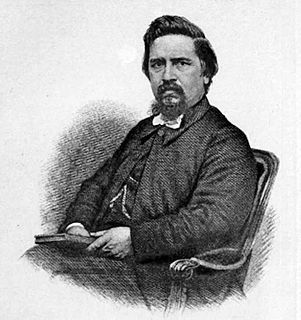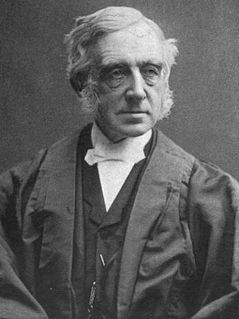A Quote by Francis Schaeffer
Any denomination or church group that forsakes inerrancy will end up shipwrecked. It is impossible to prevent the surrender of other important doctrinal teachings of the Word of God when inerrancy is gone.
Related Quotes
The infallibility and inerrancy of biblical teaching does not, however, guarantee the infallibility and inerrancy of any interpretation or interpreter of that teaching; nor does the recognition of its qualities as the Word of God in any way prejudge the issue as to what Scripture does, in fact, assert. This can be determined only by careful Bible study.
Papal infallibility and biblical inerrancy are the two ecclesiastical versions of this human idolatry. Both papal infallibility and biblical inerrancy require widespread and unchallenged ignorance to sustain their claims to power. Both are doomed as viable alternatives for the long- range future of anyone.
It is possible to evangelize the world in this generation, if the Church will but do her duty. The trouble is not with the heathen. A dead Church will prevent it, if it is prevented. Why should it not be accomplished? God will have all men to be saved and come unto the knowledge of the truth. The resources of the Church are boundless. Let the will of the Church be brought into line with the will of God, and nothing will be found to be impossible. May God grant it!
Some people say What's the use of the term if it has to be so fully documented and constrained and footnoted and all the rest. My response to that is: there is no theological word that does not have to be similarly footnoted and constrained: justification, spirit, sanctification etc. Any term can be distorted or domesticated or fly off the handle because of another alien philosophical structure that's imposed on the text and so on. Inerrancy is no different from what we find in every other theologically loaded word.
Any church which forsakes the regular and uniform for the periodical and spasmodic service of God, is doomed to decay; any church which relies for its spiritual strength and growth entirely upon seasons of "revival," will very soon have no genuine revivals to rely on. Our holy God will not conform His blessings to man's moods and moral caprice. If a church is declining, it may require a "revival" to restore it; but what need was there of its declining?
For example, the Bible does say this is a proposition, "There is no God." But of course the context of Psalm 14:1 enriches it a bit: "the fool has said in his heart, there is no God." So there are contextual constraints and when you finish putting in all the contextual constraints and sophisticated discussions of what inerrancy is and isn't.
The word of God has provided nine explanatory designations of the heavenly beings... the first group is forever around God and is said to be permanently united with Him ahead of any of the others and with no intermediary. Here there are the most holy 'thrones' and the orders said to possess many eyes and many wings, called in Hebrew the 'cherubim' and 'seraphim'... The second group... is made up of 'authorities,' 'dominions,' and 'powers.' And the third, at the end of the heavenly hierarchies, is the group of 'angels,' 'archangels,' and 'principalities.'
An iron rod being placed on the outside of a building from the highest part continued down into the moist earth, in any direction strait or crooked, following the form of the roof or other parts of the building, will receive the lightning at its upper end, attracting it so as to prevent it's striking any other part; and, affording it a good conveyance into the earth, will prevent its damaging any part of the building.




































